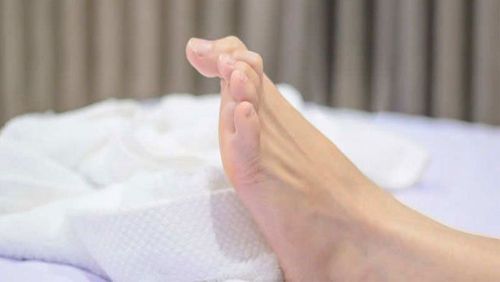Why You Have Cramps at Night (Nocturnal Leg Cramps)
Nighttime cramps—especially in the legs—are sudden, involuntary muscle contractions that usually occur in the calf, foot, or thigh. These can be painful and may disrupt your sleep. Here are the common causes:

1. Dehydration
When your body lacks enough fluids, it can lead to imbalances in electrolytes (like potassium, magnesium, and calcium), which help muscles contract and relax.
2. Mineral Deficiency
Low levels of magnesium, calcium, or potassium can cause muscles to spasm. These minerals are essential for healthy nerve and muscle function.
3. Poor Blood Circulation
Sitting or lying in the same position for a long time can reduce blood flow, especially to the legs, increasing the risk of cramps.
4. Muscle Fatigue
Overuse of muscles during the day (especially during intense workouts or standing for long periods) can trigger nighttime cramps as muscles try to recover.
5. Sleeping Position
Pointing your toes downward while sleeping can shorten calf muscles and increase the risk of cramping.
6. Medical Conditions
Conditions like diabetes, thyroid disorders, nerve damage, or pregnancy can make night cramps more common.
7. Medications
Certain medications (like diuretics, statins, or beta-blockers) may contribute to cramps as a side effect.
How to Avoid Nighttime Cramps
✅ 1. Stay Hydrated
Drink enough water throughout the day to maintain good hydration. Add electrolyte-rich drinks if you sweat a lot.
✅ 2. Stretch Before Bed
Gently stretch your calves, thighs, and feet before sleeping. Yoga or light leg stretches can prevent muscle tightening.
✅ 3. Improve Your Sleep Posture
Avoid sleeping with your toes pointed. Keep your feet in a neutral position—some use a pillow to prop up feet.
✅ 4. Massage and Warm Compress
Massage your legs before bedtime or use a warm towel/heating pad to relax the muscles.
✅ 5. Eat a Balanced Diet
Consume foods rich in magnesium (nuts, seeds, spinach), potassium (bananas, sweet potatoes), and calcium (milk, yogurt).
✅ 6. Wear Compression Socks
These can improve blood circulation, especially if you sit or stand for long hours during the day.
✅ 7. Avoid Excessive Caffeine or Alcohol
These substances may contribute to dehydration and mineral imbalance.
When to See a Doctor
If cramps are frequent, severe, or last longer than a few minutes—especially if they interfere with your sleep or daily life—you should consult a healthcare provider. It could be a sign of an underlying condition that needs attention.